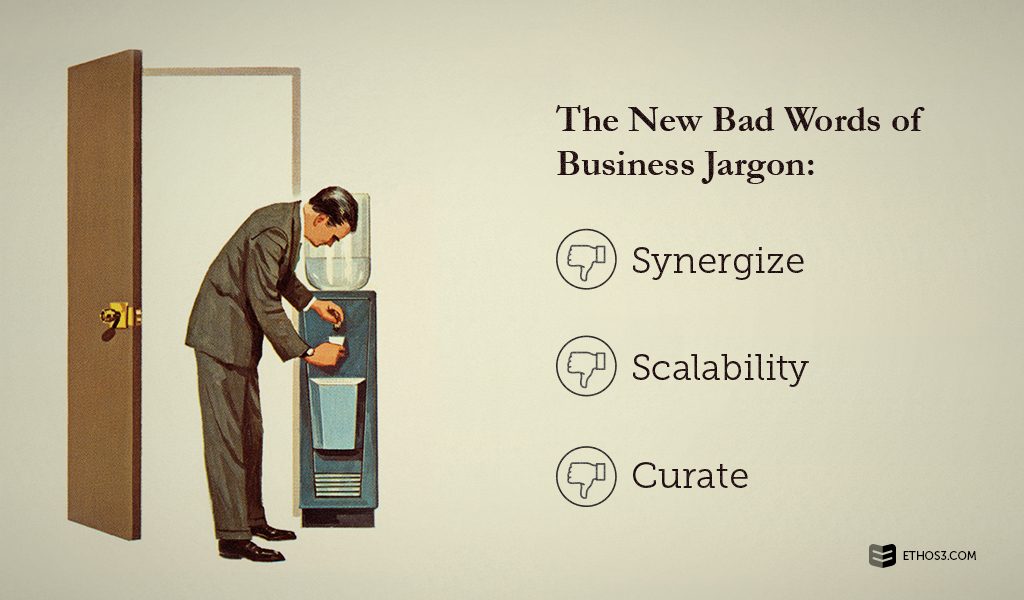Every year, we create hundreds of presentations for startups, massive corporations, healthcare companies, keynote speakers, and more. The assets we receive from each project reflect a wide range of purposes for a variety of different audience members.
You would imagine that the content we receive is wildly different to accommodate the unique purposes and audiences, right? Sadly, most content that comes through these design doors contains the kind of jargon-y, overdone, cliche business language that we shudder to see. How did it get this way?
Cliche business jargon happens when a thought leader or other influencer uses a word within their platform. The word then gets passed around in business emails, conversations, conference calls, branding materials, and eventually into presentations. It also tends to become abused, sprinkled throughout content like parmesan on spaghetti until it loses its original context and thus, its original power.
This year, the following three words have become ubiquitous in materials that we see. It doesn’t matter what the context is, these words appear to confuse the viewers away from actual, clear meaning. What words make our list? What do they mean? And finally, what can a savvy writer use as an alternative?

Bad Word #1: Synergize
This verb is spelled with painful variations like “synergyse,” and is a stand in for anything that requires organization or alignment. Companies don’t just merge with other companies anymore, they “synergize cohesively for maximum effectiveness.” Consider using an alternative, clearer word like “merge,” “connect,” or “unite.”
Bad Word #2: Scalability
If you are short, you buy a certain size of short pants. If you are tall, you buy a longer pair of pants. If this description was put into a presentation, it would be called “personal scalability for garment orientation.” As an alternative, describe something that can grow larger or smaller as just that; something that can become larger or smaller based on need.
Bad Word #3: Curate
Even outside of the business world, “curate” has become a catchall for anything that was put together by anyone besides a robot. You can “curate” a bag of a dozen doughnuts or “curate” a drawer full of your workout shirts. Instead of curate, use a word that describes the true action that took place. If you created something, then use “create.” If you collected a china cabinet filled with teacups, use the word “collect.”
Words are neither inherently good nor inherently bad. But these three words have become ill-used ways to hide meaning and sound hip. You don’t have to fill your content with five dollar jargon that has been splashed all over Silicon Valley: you just need to be clear so that your audience can understand and appreciate your message. Avoid these bad words. Opt for something simpler.
Want to learn more ways you can edit your content and make your speeches clear and poignant? Check out these related articles from our archives:
Simplify Your Language To Sound Smarter in Presentations. Here’s Why.
